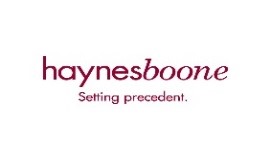
Compliance Considerations
Employers sponsoring on-site clinics or telemedicine benefits encounter compliance obligations similar to those they encounter with other employer-sponsored welfare benefits. None of these issues are insurmountable, but the employer should be aware of them. Compliance issues employers will want to consider, with the assistance of knowledgeable legal counsel, include the following:
ERISA Compliance
ERISA establishes a compliance framework for employer-sponsored medical benefits. Among other things, ERISA dictates that these benefits must be set forth in a written plan document, that various disclosures must be made to participate, and that the employer files general information about the plan with the government. When ERISA applies, some employers will want to treat the telemedicine benefit as part of the employer’s larger health plan. Doing so will help the employer meet its ERISA requirements without creating additional documents, disclosures, or filings. If helpful, we have sample language that can be included in your plan document for achieving the necessary compliance requirements.
COBRA Compliance
COBRA requires group health plans to provide participants and beneficiaries with the right to continue receiving benefits under their existing plan after certain triggering events, such as a termination of employment or a divorce, which can cause the participant of beneficiary to lose eligibility. To the extent COBRA applies, employers will have to consider if and how to meet their COBRA obligations in light of the particular clinic or telemedicine benefit. In addition to determining how much to charge for COBRA and communicating COBRA rights, employers may need to consider how to provide clinic or telemedicine access to COBRA beneficiaries. Telemedicine programs are unique in that they can allow care access to former employees, for example, without the physical presence of the clinic.
HDHP Compliance
Employers (and the employee) who participate in a high deductible health plan (HDHP) have the option to make pretax contributions to a health savings account (HSA). Funds in the HSA can then be used to pay for medical expenses. To be able to make HSA contributions, however, the health plan member cannot receive “significant benefits in the nature of medical care” for free. When an employee completes a doctor visit with a diagnosis and prescription, this service can be interpreted as “significant”. In those cases Medicine at Work™ can charge a normal market fee (typically $40) to avoid risking pretax benefits of the HSA contributions. These charges can be paid by using an HSA program’s “flex-pay” card or similar program.
Resources

Ms. Sheryl Dacso, Partner
Seyfarth Shaw L.L.P.
700 Milam, Ste 1400
Houston, TX 77002
Phone: 713-238-1810
E-mail: [email protected]

Mr. Jesse Gelsomini, Partner
Haynes and Boone L.L.P.
1221 McKinney, Ste 2100
Houston, TX 77010
Phone: 713-547-2233
Email: [email protected]
www.haynesboone.com
